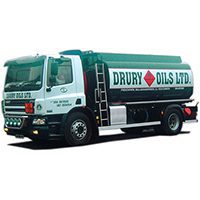
News
Smart solutions
Keen to grow in the fuel distribution sector, managing director Steve Spelman says MHT has products for everyone right down to the smallest depot
Keen to find out more about MHT Technology, the terminal automation and tank gauging solutions specialist, deputy editor Liz Boardman travelled to the company’s base in Melsonby near Richmond to meet managing director Steve Spelman and product manager Judith Brown
2014 is a big year for the company as it celebrates 20 years in business. From just five members of staff in 1994, the company has grown almost five fold and now employs 24 people, including Steve who joined the company in June 2013. “MHT has built up a strong team with many loyal and committed staff,” said Steve. “There’s a huge amount of knowledge and experience here and we’re in a strong position to continue the growth of the company.”
In September 2013 the company became a wholly owned subsidiary of Endress+Hauser. “It’s a win-win situation for us,” explained Steve. “Although we have the backing of a large, well known company and access to international markets, we are still MHT. We have retained the brand – the company name and logo remains unchanged and we maintain our independence within the market place when it comes to recommending gauges and instrumentation.”Scalable software
Having carved a niche as a supplier of tank and inventory management solutions which can interface to field devices from all leading manufacturers, MHT offers a range of software and hardware solutions designed to lower operating costs and improve safety.
One of the company’s first products, Visual Tank for Windows (VTW) was launched in 1994 and still remains one of its most popular. “As well as providing real time stock monitoring, the software also increases safety by reducing the need for manual dips,” explains Judith. “It enables fuel distributors to optimise deliveries and can also provide leak and theft detection. By working with all the main gauge manufacturers, we’re able to provide a complete service.”
Launched in 2011, smartTAS terminal automation software is a scalable solution which can communicate directly with a single loading skid at a typical depot or multiple gantries at larger oil terminals. “Not only does smartTAS increase security through controlled loading but it also helps to reduce costs by increasing efficiency and quickly identifying any losses incurred,“ said Judith. “By working closely with a number of loading skid manufacturers and suppliers we can offer a complete solution.
“Additionally there’s a link between the two software products, so physical stocks displayed in VTW can be compared against the transactional data in smartTAS. This means any losses can be identified and the cause investigated.”
“Whilst a typical depot would have smartTAS, VTW and an ATEX approved Field Display, which provides level, temperature and volume data for multiple tanks, our systems are completely scalable and depots may opt to have just one element rather than the full package,” added Steve.Size doesn’t matter
Although MHT’s main market is the terminals and storage sector and the company can boast an impressive client portfolio, Steve was keen to stress that it offers products which are suitable for even the smallest depot. “We have products for every market – both big and small – all of which are tailored to meet specific site and customer requirements. The fuel distribution sector is an extremely important market for us and one which we are keen to grow.”
Carrs Billington is one of MHT’s biggest fuel distribution customers. The company is benefiting from increased efficiency and cost savings following the successful rollout of a programme of depot automation solutions across eight sites (five in England and three in Scotland.)“I can remotely monitor stock 24-7 across all of our sites, either from the office or at home. This is particularly useful at our unmanned sites, giving me both visibility and peace of mind.”Robert Young, operations manager for Carrs Billington’s five English sitesAdded support
In addition to its range of products, site surveys, installation and commissioning are all part of the company’s standard service offering and are tailored on a site by site basis, as Judith explained: “We offer a free site survey as part of our pre-sales process where we can demonstrate the system and get a real understanding of the customer’s requirements.
“Following installation, our support team provides a selection of maintenance and support packages. These range from remote support whereby we set up a remote login and can be on hand to support customers within office hours, to complete 24/7 support for some of our bigger customers. We have a helpdesk which is manned during office hours and out of hours there is always an engineer on call.”
The company also offers face to face training and e-learning, both of which are proving popular with customers.An exciting new development
Ensuring continuity of software systems is an essential requirement for most of MHT’s customers. With this in mind, the company has just launched a redundant solution for its smartTAS software, which enables a vehicle to load without interruption, even if the primary server has a hardware or software failure. In this instance a secondary server would automatically take over in a matter of seconds.
“This gives our customers ultimate piece of mind and eradicates costly downtime,” said Steve. “It also means that routine IT maintenance can be done in office hours – again passing a cost saving onto our customers. With customers throughout the UK and across the world already using our redundancy offering for VTW and LMS (our LNG management system), we’re pleased to complete our portfolio with the new redundancy offering for smartTAS.”




